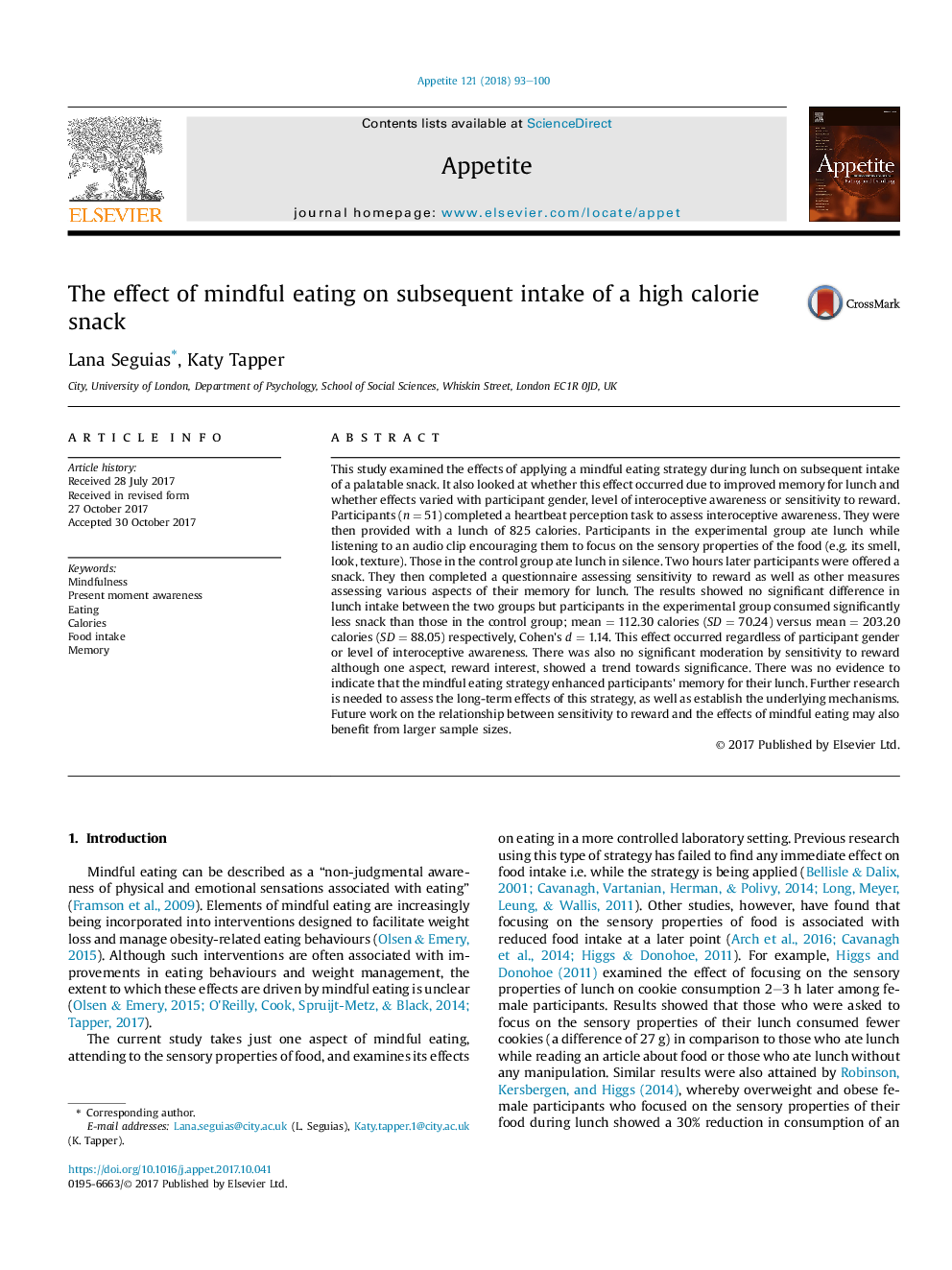ترجمه فارسی عنوان مقاله
تأثیر مصرف ذهنی بر مصرف بعدی از میان وعده های با کالری زیاد
عنوان انگلیسی
The effect of mindful eating on subsequent intake of a high calorie snack
| کد مقاله | سال انتشار | تعداد صفحات مقاله انگلیسی |
|---|---|---|
| 119795 | 2018 | 8 صفحه PDF |
منبع

Publisher : Elsevier - Science Direct (الزویر - ساینس دایرکت)
Journal : Appetite, Volume 121, 1 February 2018, Pages 93-100
ترجمه کلمات کلیدی
ذهن آگاهی، آگاهی لحظه ای در حال حاضر غذا خوردن، کالری، مصرف غذا، حافظه،
کلمات کلیدی انگلیسی
Mindfulness; Present moment awareness; Eating; Calories; Food intake; Memory;

